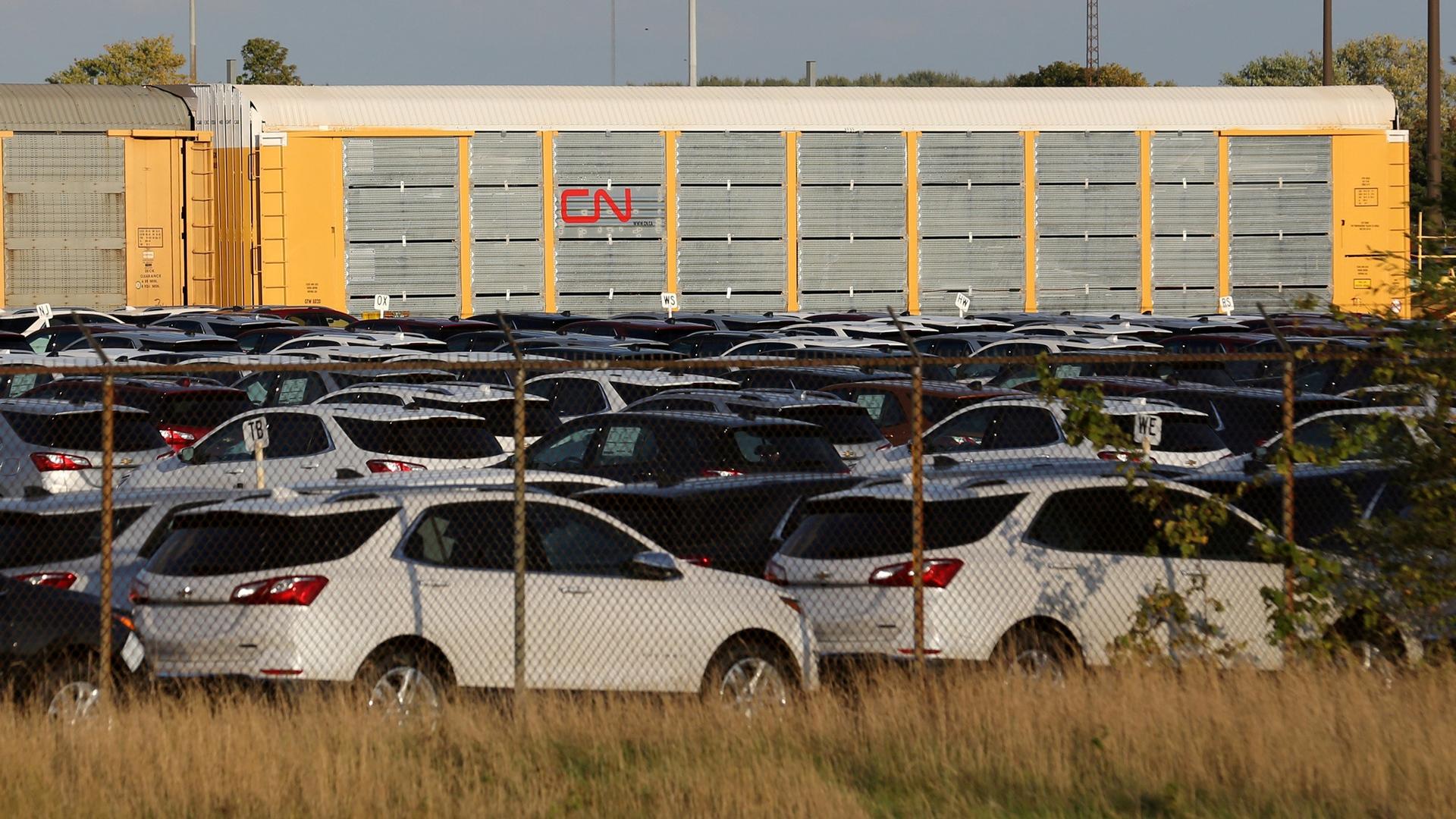Chevrolet Equinox SUVs are parked awaiting shipment by CN Rail next to the General Motors CAMI assembly plant in Ingersoll, Ontario.
After more than a year of talks, Mexico and the United States announced a bilateral deal on Monday, setting the stage for Canada to rejoin negotiations to modernize 24-year-old NAFTA which accounts for over $1 trillion in annual trade between the three nations. On Wednesday, Canada and United States are set to continue working to tackle their contentious issues.
Canadian Foreign Minister Chrystia Freeland told reporters on Tuesday that Mexico’s concessions on auto rules of origin and labor rights was a crucial breakthrough, clearing the way for Ottawa to resume talks with United States this week.
After being sidelined from the talks for more than two months, Freeland will be under pressure to accept terms the United States and Mexico worked out. The US Congress also wants a deal that includes Canada.
“The fact that agreement on those difficult issues for Mexico was able to be reached definitely clears the way for us to have significant, substantive, and I hope productive, conversations with the US this week,” Freeland said after a brief meeting with US Trade Representative Robert Lighthizer.
She dodged questions on what points Canada would be willing to concede on, noting that Ottawa’s key issues are well known.
“We will, as we have done throughout this negotiation, stand up for the Canadian national interest and for Canadian values, while looking for areas where we can find a compromise that everyone can live with,” she said.
President Donald Trump warned he could proceed with a deal with Mexico alone and levy tariffs on Canada if it does not come on board with the revised trade terms.
Despite the optimism, there are some sticking points. One of the issues for Canada in the revised deal is the US effort to dump the Chapter 19 dispute resolution mechanism that hinders the United States from pursuing anti-dumping and anti-subsidy cases. Lighthizer said on Monday that Mexico had agreed to eliminate the mechanism.
Other hurdles include intellectual property rights and extensions of copyright protections to 75 years from 50, higher threshold than Canada has previously supported.
But with even these hurdles, this is the closest the three nations have come to clinching a deal, and they race toward a Friday deadline to reach an in-principle deal.
“I think that what they probably need by Friday is some indication from Canada to the Americans that it’s ready to play ball, that they’re ready to negotiate in good faith,” said Mark Warner, a trade lawyer with MAAW Law, which specializes in Canadian and U.S. law.
“If Chrystia Freeland goes down there and she starts going on and on about red lines again, then I think it’s all over,” he added.
By Julie Gordon and Sharay Angulo/Reuters
Reporting by Julie Gordon and Sharay Angulo; Writing by Denny Thomas; Editing by Lisa Shumaker.
